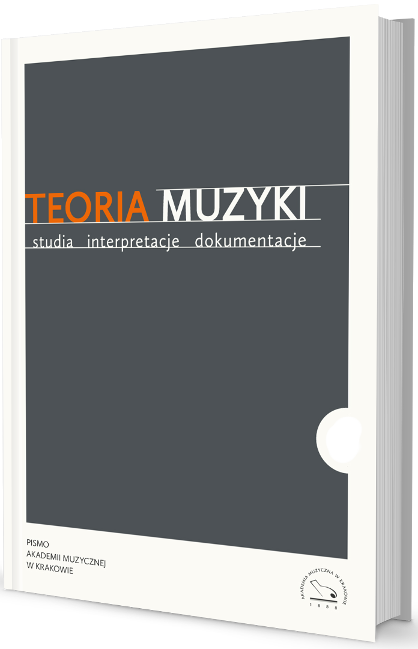Nowe spojrzenia na muzykę Karłowicza
New Perspectives on Karłowicz’s Music
Author(s): Leszek PolonySubject(s): Music
Published by: Akademia Muzyczna w Krakowie im. Krzysztofa Pendereckiego
Keywords: Mieczysław Karłowicz; Młoda Polska; modernizm; muzyka absolutna; muzyka programowa
Summary/Abstract: Since the source and critical edition of Dzieła Mieczysława Karłowicza was published by the end of 1980s, several momentous positions were added to the musicological literature devoted to the Polish composer was increase. The presence of outstanding foreign musicologists among these authors is especially gratifying. Their studies introduced new analyses and interpretations into Karłowicz’s literature, sometimes very creative and inspiring, at other times debatable. The text discusses two extensive articles – Stefan Keym’s and Stephen Downes’s – from Karłowicz’s collective monograph edited by Luca Sala. Both the articles are radically contradictory to one another in interpreting Karłowicz’s music.Stefan Keym argues that Karłowicz was essentially a supporter of “absolute” (or “pure”) music in the sense of Dahlhaus’s “metaphysics of instrumental music”. He does not negate the ideologically-inclined nature of Karłowicz’s orchestra compositions, although he considers it a secondary matter. More than their hermeneutics, he is rather interested in formal, genre and aesthetic models of symphonic music in their unquestionable relations with non-musical ideas, as well as the style and musical language and originality in adaptations and interpretations of patters.The methodology of Stephen Downes is in turn thoroughly heteronymous and hermeneutical in nature, though supported by strict structural analyses of harmonics and the sound process. The starting point in his interpretations of Karłowicz’s works is the Dionysian myth in its diverse forms and modifications as well as complex connections with pessimism, nihilism, and decadence. Karłowicz’s “musical patterns” – are the “holy trinity” of Wagner, Tchaikovsky and Richard Strauss – as well as the work of his favourite writer: Turgenev.The deliberations of both authors aim at similar conclusions – the composer’s music is characteristic for its pessimism which increases with the passage of time, ending with extreme experiences of abyss and nothingness.
Journal: Teoria Muzyki. Studia, Interpretacje, Dokumentacje
- Issue Year: VI/2017
- Issue No: 10
- Page Range: 35-44
- Page Count: 10
- Language: Polish

